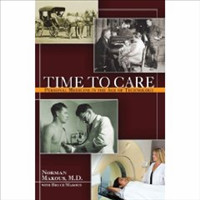Personal Care vs. Individual Care vs. Herd Care
The science of medicine can identify genetic, biochemical, physiological, and anatomic characteristics and measure how they are modified by disease in each individual. For example, the combination of hypertension, diabetes, and liver disease may be unique in one person and require treatment quite different from others with the same disease manifestation. Addressing these differences is the basis of individual medical care.
Many important differences that affect disease manifestations and responses to treatment, however, are difficult to quantify. Every person has his or her personal theory regarding the maintenance of good health and the nature of illness. These result from the combination of cultural background, education, vocation, standard of living, experience, and world view. As you can imagine, they are difficult to quantify.
These personal attitudes enhance or impair the responses to drugs and other treatments. A good example would be a patient who has very little response to a severe heart attack, as compared to another patient experiencing a complete upheaval of their health and self-image from a heart attack of exactly the same severity.
Such effects are actually measurable in about one out of three people and are referred to as placebo responses. Attention to these important personal attitudes makes medical care an art based on science. Personal care is medicine that take all of these factors into consideration, and it is fundamental to effective treatment.
Medical care based upon the overall benefit for a group of individuals, rather than for each individual, falls into the category of herd care. This is the approach adopted when government is responsible for public health. Meting out the swine flu vaccine is a current example.
Herd care also results when people pool their medical purses through insurance companies. The companies dictate the amount of medical care the group as a whole is allowed. This herd care can be detrimental to individualized care, whether personalized or not. The limitation of resources is recognized, and the result is rationing.
Herd care may be fundamental to the health of our financial system, but for healthier and happier people in our society, care can and should be personalized, not just individualized. The individual's personal experience during the health care process must prevail.
Norman Makous, M.D.
Many important differences that affect disease manifestations and responses to treatment, however, are difficult to quantify. Every person has his or her personal theory regarding the maintenance of good health and the nature of illness. These result from the combination of cultural background, education, vocation, standard of living, experience, and world view. As you can imagine, they are difficult to quantify.
These personal attitudes enhance or impair the responses to drugs and other treatments. A good example would be a patient who has very little response to a severe heart attack, as compared to another patient experiencing a complete upheaval of their health and self-image from a heart attack of exactly the same severity.
Such effects are actually measurable in about one out of three people and are referred to as placebo responses. Attention to these important personal attitudes makes medical care an art based on science. Personal care is medicine that take all of these factors into consideration, and it is fundamental to effective treatment.
Medical care based upon the overall benefit for a group of individuals, rather than for each individual, falls into the category of herd care. This is the approach adopted when government is responsible for public health. Meting out the swine flu vaccine is a current example.
Herd care also results when people pool their medical purses through insurance companies. The companies dictate the amount of medical care the group as a whole is allowed. This herd care can be detrimental to individualized care, whether personalized or not. The limitation of resources is recognized, and the result is rationing.
Herd care may be fundamental to the health of our financial system, but for healthier and happier people in our society, care can and should be personalized, not just individualized. The individual's personal experience during the health care process must prevail.
Norman Makous, M.D.
2/8/2010 2:49:54 PM

Written by Norman Makous
Dr. Norman Makous is a noted cardiologist who has practiced for decades in Philadelphia. He has extensive medical credentials, including serving on the faculty of the University of Pennsylvania Medical School for twenty-five years, serving as regional president of the American Heart Association and other professional ass...
View Full Profile
Comments
Be the first to leave a comment.
Not Everyone Should Use Essential Massage
Wellness Editor

Strain of Gut Bacteria Could Be Destroying Your Liver
Wellness Editor

Iron Levels Could Affect How Fast We Age
Wellness Editor

Four Ways to Raise Financially Responsible Kids
Anne Leedom

Still Wearing Shoes in Your Home?
Wellness Editor

When Body Odor Is a Sign of Illness
Wellness Editor

Are You a ‘Doomscroller’? A Warning
Wellness Editor

Parenting Power Struggles: Who is Really Misbehaving?
Anne Leedom
